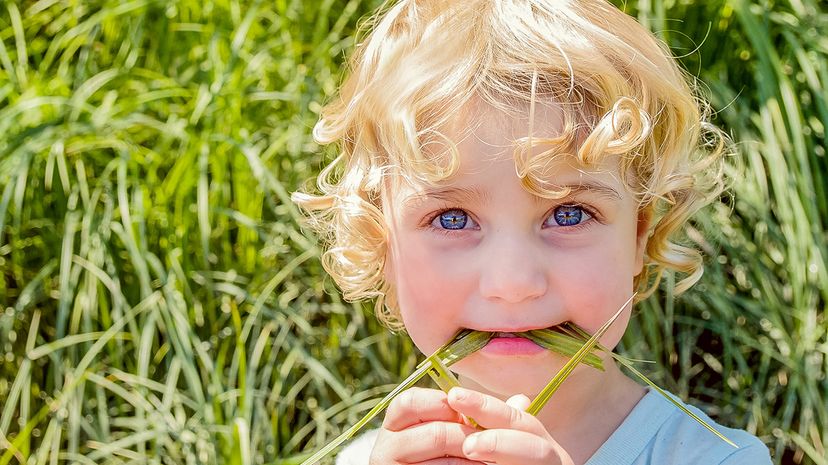
Nothing during the summer smells as sweet as a freshly cut lawn. The scent lingers for hours. Geez, you think, wouldn’t all those clumps of freshly cut grass look and taste wonderful on top of a salad or in the middle of BLT. After all, grass is green, just like lettuce, broccoli and spinach. It has to be good for you, right?
Not really. Generally speaking, you can eat grass. It’s natural and it’s not toxic. Yet, there is no reason to eat it — unless you want to get sick. Just ask the congregants of a South African church. In 2014, their pastor had them eat grass to "be closer to God." While one person said her sore throat was cured after chowing down on the lawn, photos show many more got sick.
Moreover, eating grass has zero of the nutritional value for humans it does for cows, yaks, deer and sheep. These and other ruminants have special digestive systems, including a four-chamber stomach, which allows them to consume and metabolize the nutrients in grass.
We humans do not have such stomachs. That means grass doesn’t break down in our guts. If we eat a lot of it, we’ll most likely vomit or have diarrhea. At a minimum, we’ll just pass it out undigested. Plus, eating grass is not good for human teeth. Grass contains a lot of silica, the main ingredient in many rocks including quartz and sandstone.
Eat enough grass, and it will wear away the enamel on your teeth. Cows, goats and sheep don’t have this problem. Among other dental attributes, they chew grass in a side-to-side motion. Their molars shred the plant into tiny bits, which makes it easy to digest. Ruminants also have teeth that are always growing. That means they can replace the worn-out surface rather quickly.
Interestingly enough, there was a period in history when humans could digest grass. That was around 3.5 million years ago. Our smaller, hairier distant cousins, Australopithecus bahrelghazali had teeth that were well-suited to the task.
Now That’s Interesting
During the Irish potato famine in the 1840s, people ate grass because they had no other food. People told tales of seeing corpses with green around their mouths.